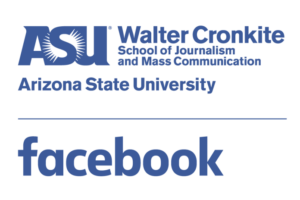NLP to help kick off national news literacy initiative
News literacy’s moment has arrived.


Our work at the News Literacy Project (NLP) offers evidence of this growing demand: In just 10 months, 4,500 educators who teach 550,000 students in every state in the U.S. (and at least 38 other countries) have registered to use NLP’s Checkology™ virtual classroom. Dozens are signing up daily.
It’s a start, but there’s much more to be done. Recognizing both the need and the opportunity, Facebook is convening a News Literacy Working Group this weekend — an initial step to help news literacy practitioners equip a far wider audience with the tools to know what to trust in the digital age.
We’re proud to be joining more than 50 educators, nonprofit leaders, journalists, funders and representatives of social media companies who will be gathering this weekend at Arizona State University’s Walter Cronkite School of Journalism to review their experiences in the field, identify research opportunities and assess projects for funding. I am hopeful that this will be the first of a series of meaningful events for this group.
This meeting is part of the broader Facebook Journalism Project — an initiative by the world’s largest social media company to combat misinformation by working with news organizations, educators and independent fact-checkers and making improvements to its platform.
As part of this initiative, we at NLP are collaborating with Facebook to produce an eight-week public service advertising campaign this spring to help stem the spread of viral rumors, hoaxes, conspiracy theories and other types of misinformation and to help give real news a fighting chance.
We’re well aware that in today’s information ecosystem, the readers, viewers and listeners are in charge. They decide what news to receive and when, where and how to access it. Moreover, they comment on it, they share it and they actively post on social media. We believe that we can help them determine the credibility of what they’re reading, watching and hearing — meaning that they will be less prone to being deceived and to deceiving others.
We also believe that only a concerted national education effort can give the public the ability to be informed, responsible and empowered consumers, creators and sharers of news and information. We are ready to take on this challenge. Nothing less than the health of the nation’s democracy is at stake.
